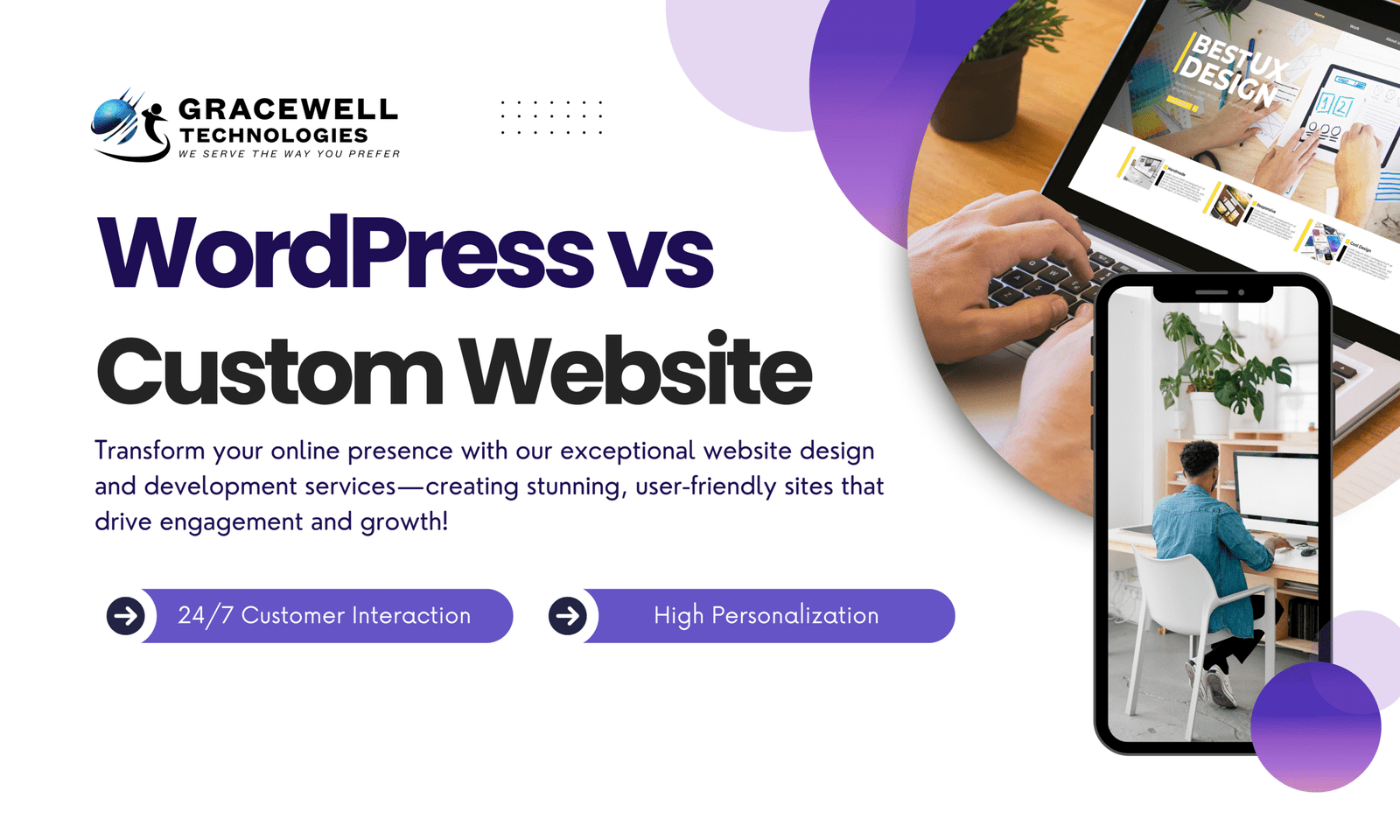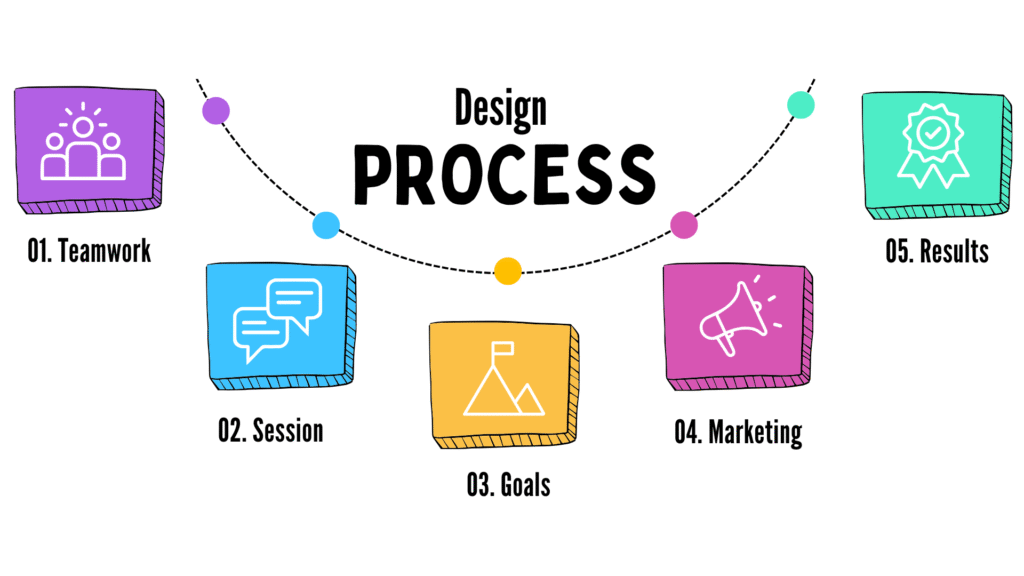WordPress vs Custom Website – Pros, Cons, and What to Choose

WordPress vs Custom Website: Which Is Better for Your Business?
In today’s fast-paced digital landscape, your website isn’t just an online presence — it’s the heart of your brand identity. When building a site, one of the biggest decisions you’ll face is choosing between WordPress and a custom website. Both options have unique advantages, but which one fits your business goals best? Let’s find out.
1. Understanding the Basics
Before diving into the comparison, it’s important to understand what each option offers.
What Is WordPress?
WordPressis an open-source content management system (CMS) that allows users to create websites quickly with pre-built themes, plugins, and minimal coding. It’s known for its flexibility, affordability, and massive global community.
What Is a Custom Website?
A custom website is built from the ground up — designed and coded specifically for your brand. Unlike templates, it offers complete control over design, performance, and functionality. Developers use frameworks like React, Laravel, or Node.js to build truly unique experiences.
2.WordPress: Pros and Cons
Pros of WordPress
- Cost-effective:You can build a website at a lower cost with free or affordable themes.
- Quick setup: WordPress can be installed and configured in minutes.
- Easy to manage: Even non-technical users can update content effortlessly.
- Plugin ecosystem: Thousands of plugins add new features without custom coding.
Cons of WordPress
- Security vulnerabilities: Frequent plugin updates and weak security practices can lead to risks.
- Performance issues: Too many plugins can slow down your site.
- Limited customization: You’re somewhat restricted by the theme structure.
Example: A small business owner can easily create a company website with WordPress, but as the business grows, they might hit performance or customization limitations.
3. Custom Website: Pros and Cons
Pros of Custom Websites
- Unique design: Every element is tailored to your brand’s identity.
- Better performance: Lightweight code ensures faster loading times.
- Enhanced security: Built with robust, custom security layers.
- Scalability: Easily adapts as your business expands.
Pros of Custom Websites
- Unique design: Every element is tailored to your brand’s identity.
- Better performance: Lightweight code ensures faster loading times.
- Enhanced security: Built with robust, custom security layers.
- Scalability: Easily adapts as your business expands.
Example: A growing e-commerce brand might prefer a custom website for better scalability and unique shopping features
4. Key Differences Between WordPress and Custom Websites
| Feature | WordPress | Custom Website |
|---|---|---|
| Development Time | Quick (1–2 weeks) | Longer (4–8 weeks) |
| Cost | Low to Medium | Medium to High |
| Customization | Limited | Unlimited |
| Maintenance | Easy | Requires developer |
| Security | Moderate | Stronger |
| Scalability | Good for small to medium sites | Excellent for any size |
5. SEO Performance: Which Wins?
Both options can perform well in SEO when optimized correctly. However:
- WordPress offers built-in SEO plugins like Yoast SEO and Rank Math
for quick optimization. - Custom websites, on the other hand, allow developers to fine-tune site structure, metadata, and schema for superior SEO performance.
If you plan for long-term growth and complex SEO strategies, a custom website offers more flexibility and power

Conclusion: The Smart Choice for Your Business
In summary, the WordPress vs custom website debate doesn’t have a one-size-fits-all answer. WordPress offers simplicity and speed, while custom websites deliver power and personalization.
Ultimately, the right choice depends on your business vision and how much control you want over your digital presence.
If you’re looking for expert guidance in web design, SEO, or custom development, Gracewell Technologies can help you make the best decision — and build a website that drives measurable growth.
